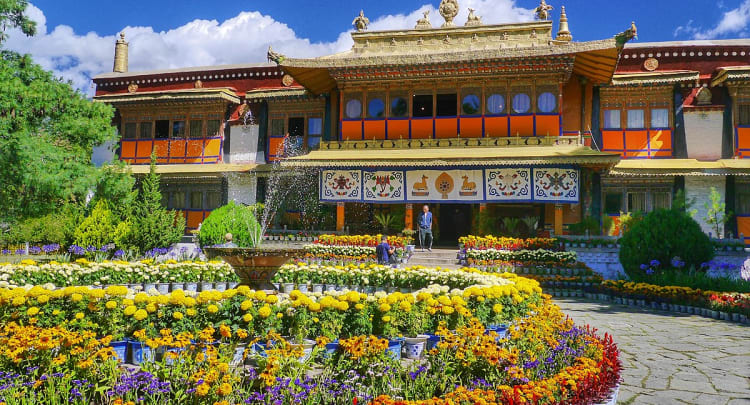The Norbulingka Institute is a cultural and educational center located in Dharamshala, India. It was established in 1988 by the Tibetan government in exile to preserve and promote Tibetan art and culture.
The institute is named after the Norbulingka Palace, the traditional summer residence of the Dalai Lamas in Lhasa, Tibet. It is situated in a beautiful garden in the Kangra Valley, and its campus includes a monastery, temples, museums, and workshops for traditional Tibetan arts and crafts.
The institute offers courses in Tibetan language, thangka painting, woodcarving, sculpture, weaving, and other traditional arts and crafts. It also hosts cultural events and festivals throughout the year, including the Losar (Tibetan New Year) festival and the Norbulingka Summer Festival.
In addition to its educational and cultural programs, the Norbulingka Institute also operates a guesthouse, restaurant, and shop where visitors can learn more about Tibetan culture and purchase traditional crafts and souvenirs. The institute plays an important role in preserving and promoting Tibetan culture, and is a must-visit destination for anyone interested in Tibetan art and culture.


























